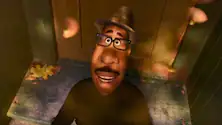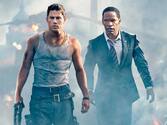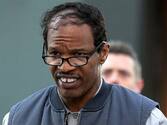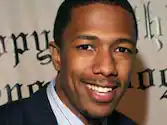Los
Angeles
(Reuters):
Get
real,
Mann.
Director
Michael
Mann
ushers
Miami
Vice
into
theatres
tomorrow
promising
a
reality-based
movie
with
the
sort
of
raw
grit
and
steamy
sex
that
never
would
have
played
in
the
hit
1980s
television
show
of
the
same
name
he
helped
create.
Yes,
Miami
Vice
is
back
and
so
are
its
police
detectives
Ricardo
Tubbs
and
Sonny
Crockett,
but
gone
are
the
easy-going
manners
of
their
former
actors
Philip
Michael
Thomas
(Tubbs)
and
Don
Johnson
(Crockett).
In
their
place
come
tight-lipped,
undercover
tough
guys
Jamie
Foxx
(Tubbs)
and
Colin
Farrell
(Crockett).
These
two
new
partners
rarely
make
wisecracks
because
they
are
too
focused
on
catching
bad
guys
and
bedding
good
girls.
''I
had
zero
interest
in
doing
a
Xerox
or
a
nostalgia
trip
on
the
first
one,''
Mann
told
Reuters.
''By
design,
I
had
to
decide
as
a
film
director:
'Do
I
want
audiences
tripping
into
associations
that
are
nostalgic,
or
do
I
want
them
feeling
they
are
right
now
in
the
contemporary
world?'
And
the
answer
was
the
latter,''
he
added.
While
obviously
hoping
to
attract
viewers
who
remember
the
TV
series,
Mann
said
the
only
elements
shared
by
movie
and
TV
show
are
a
rapidly
moving
story
and
a
world
of
allure
filled
with
drug
runners
and
corrupt
cops
-
a
world
called
Miami.
In
a
career
spanning
more
than
three
decades
in
Hollywood,
writer/producer/director
Mann
has
made
a
specialty
of
lending
his
movies
a
sense
of
realism
few
other
filmmakers
can
match.
Mann,
63,
got
his
start
in
the
1970s,
writing
for
cop
shows
like
''Police
Story''
and
''Starsky
and
Hutch.''
In
1984,
he
executive-produced
mega-hit
Miami
Vice,
which
became
a
pop
culture
phenomenon
influencing
TV,
movies,
music
and
fashion.
He
rose
up
to
the
ranks
of
TV
writers,
but
Mann
said
his
goal
always
was
to
make
movies,
and
by
the
1990s
he
was
churning
out
suspense-filled
dramas
such
as
''Heat,''
starring
Robert
De
Niro
and
Al
Pacino,
and
''The
Insider''
with
Russell
Crowe.
Mann
said
he
always
pictured
the
script
for
the
original
Miami
Vice
as
a
movie,
but
by
the
time
he
read
it,
the
TV
networks
already
had
stepped
in.
It
was
about
four
years
ago
that
Foxx
approached
Mann
about
the
idea
of
a
new
movie,
and
the
writer/director
finally
saw
the
opportunity
to
create
the
film
he'd
always
wanted.
The
'Miami
Vice
I
want
to
see
is
undercover,
right
now,
and
life
in
those
dangerous
places,
for
real,''
he
said.
''(That)
means
there
are
relationships,
real
human
relationships.
People
sleep
together
...
And
if
you
engage
in
this
kind
of
work,
it
takes
you
into
dangerous
situations
and
very
dangerous
places
and
bad
things
happen.''
This
new
Miami
Vice
doesn't
so
much
bring
audiences
on
a
journey
to
an
explosive
climax
as
it
parachutes
them
into
a
fast-paced
tale
of
murderous
thugs
and
ruthless
drug
runners.
Tubbs
and
Crockett
see
one
of
their
key
informants
being
killed
after
an
FBI
sting
operation
goes
bad.
They
take
on
identities
as
drug
runners
to
ferret
out
the
murderers
and
are
plunged
into
a
drug-making
ring
led
by
Montoya
(Luis
Tosar)
and
his
key
lieutenant,
Isabella
(Gong
Li).
Crockett
falls
in
love
with
Isabella,
while
back
home
Tubbs'
new
''U.C.''
identity
puts
the
life
of
his
lover,
fellow
Miami
cop,
Trudy
(Naomie
Harris),
in
peril.
The
two
are
conflicted
by
their
lives
and
loves,
but
resolute
in
their
goal
to
nail
Montoya.
Throughout
it
all
as
anyone
would
expect
from
a
movie
about
Miami
there
are
cool
cars,
fast
boats,
faster
airplanes
and
svelte
bodies.
''This
is
just
a
hot
concept
and
a
hot
movie,''
said
Foxx.
While
reviews
are
still
coming
in,
critics
at
show
business
newspapers,
Daily
Variety
and
The
Hollywood
Reporter,
agree
that
much
of
Miami
Vice
is
style
over
substance.
To
heighten
the
movie's
air
of
reality,
the
actors
trained
with
weapons
and
worked
with
undercover
cops.
They
acted
out
scenarios
for
drug
buys,
and
Farrell
even
tagged
along
on
a
mishandled
drug
bust
he
thought
was
real.
While
there
have
been
news
reports
of
problems
on
the
set,
Mann
labelled
them
nonsense,
and
Farrell
noted
one
report
had
he
and
Foxx
at
odds
when,
''I
hadn't
even
seen
him
yet.''
As
he
did
with
2004's
''Collateral,''
Mann
used
new
digital
cameras
to
shoot
Miami
Vice
because
doing
so
allowed
him
to
change
elements
like
lighting
on
the
set
during
the
shoot,
which,
he
said,
added
to
the
film's
sense
of
reality.
Moreover,
digital
gives
the
visual
look
of
a
movie,
a
''tremendous
depth
of
field,
and
sometimes
allows
you
to
feel
you
are
that
person
standing
next
to
a
character,''
Mann
said.
He
means
right
in
the
midst
of
the
action,
and
that
is
real,
Mann.




 Click it and Unblock the Notifications
Click it and Unblock the Notifications























